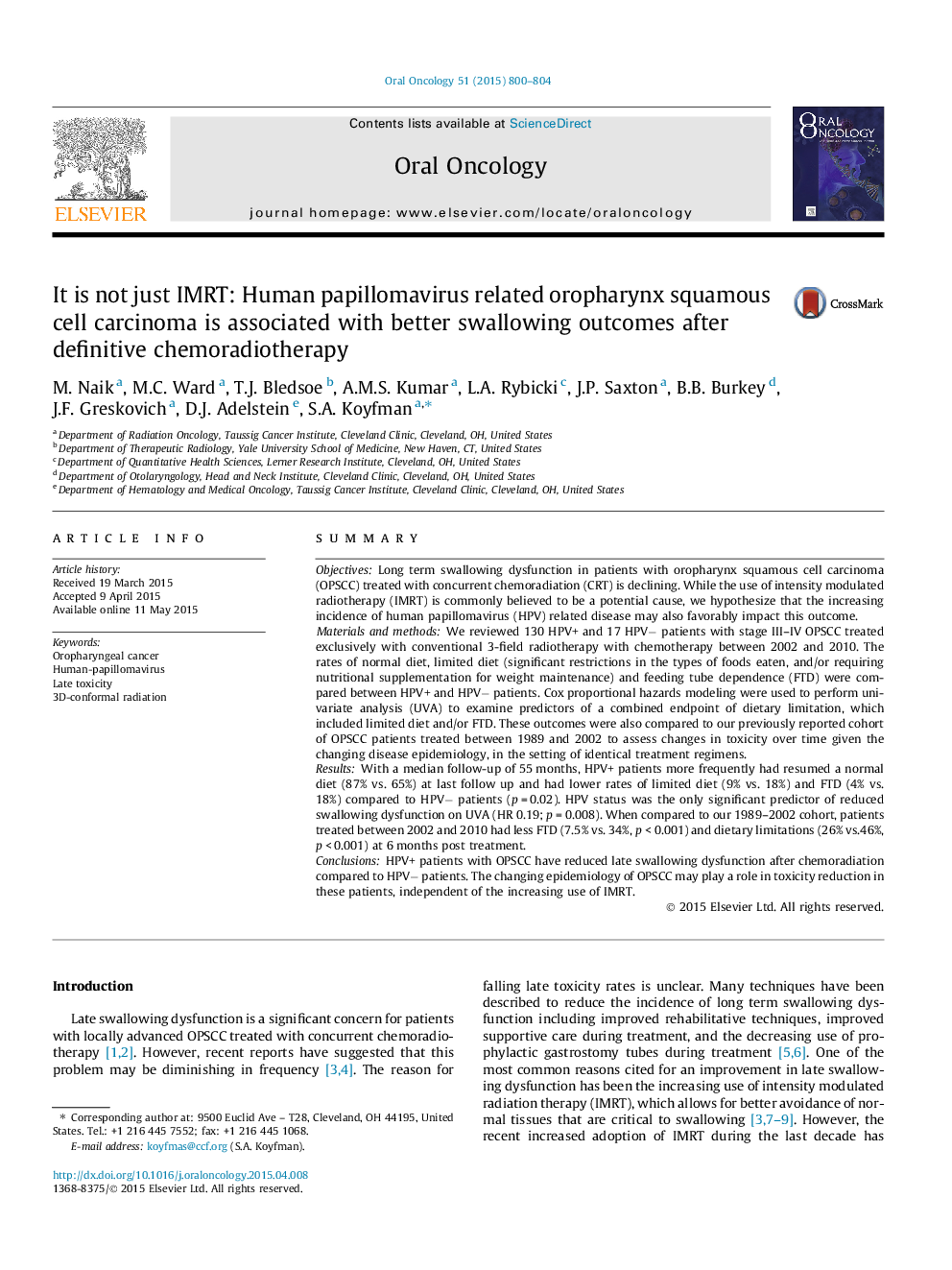| کد مقاله | کد نشریه | سال انتشار | مقاله انگلیسی | نسخه تمام متن |
|---|---|---|---|---|
| 3163987 | 1198760 | 2015 | 5 صفحه PDF | دانلود رایگان |

• Long term side effects are decreasing after radiation for oropharyngeal cancer.
• HPV+ oropharynx cancer patients have less long term side effects than HPV− pts.
• HPV+ patients have low long term side effects even without the use of IMRT.
• Low long term toxicity rates in HPV+ patients should inform clinical trial design.
SummaryObjectivesLong term swallowing dysfunction in patients with oropharynx squamous cell carcinoma (OPSCC) treated with concurrent chemoradiation (CRT) is declining. While the use of intensity modulated radiotherapy (IMRT) is commonly believed to be a potential cause, we hypothesize that the increasing incidence of human papillomavirus (HPV) related disease may also favorably impact this outcome.Materials and methodsWe reviewed 130 HPV+ and 17 HPV− patients with stage III–IV OPSCC treated exclusively with conventional 3-field radiotherapy with chemotherapy between 2002 and 2010. The rates of normal diet, limited diet (significant restrictions in the types of foods eaten, and/or requiring nutritional supplementation for weight maintenance) and feeding tube dependence (FTD) were compared between HPV+ and HPV− patients. Cox proportional hazards modeling were used to perform univariate analysis (UVA) to examine predictors of a combined endpoint of dietary limitation, which included limited diet and/or FTD. These outcomes were also compared to our previously reported cohort of OPSCC patients treated between 1989 and 2002 to assess changes in toxicity over time given the changing disease epidemiology, in the setting of identical treatment regimens.ResultsWith a median follow-up of 55 months, HPV+ patients more frequently had resumed a normal diet (87% vs. 65%) at last follow up and had lower rates of limited diet (9% vs. 18%) and FTD (4% vs. 18%) compared to HPV− patients (p = 0.02). HPV status was the only significant predictor of reduced swallowing dysfunction on UVA (HR 0.19; p = 0.008). When compared to our 1989–2002 cohort, patients treated between 2002 and 2010 had less FTD (7.5% vs. 34%, p < 0.001) and dietary limitations (26% vs.46%, p < 0.001) at 6 months post treatment.ConclusionsHPV+ patients with OPSCC have reduced late swallowing dysfunction after chemoradiation compared to HPV− patients. The changing epidemiology of OPSCC may play a role in toxicity reduction in these patients, independent of the increasing use of IMRT.
Journal: Oral Oncology - Volume 51, Issue 8, August 2015, Pages 800–804